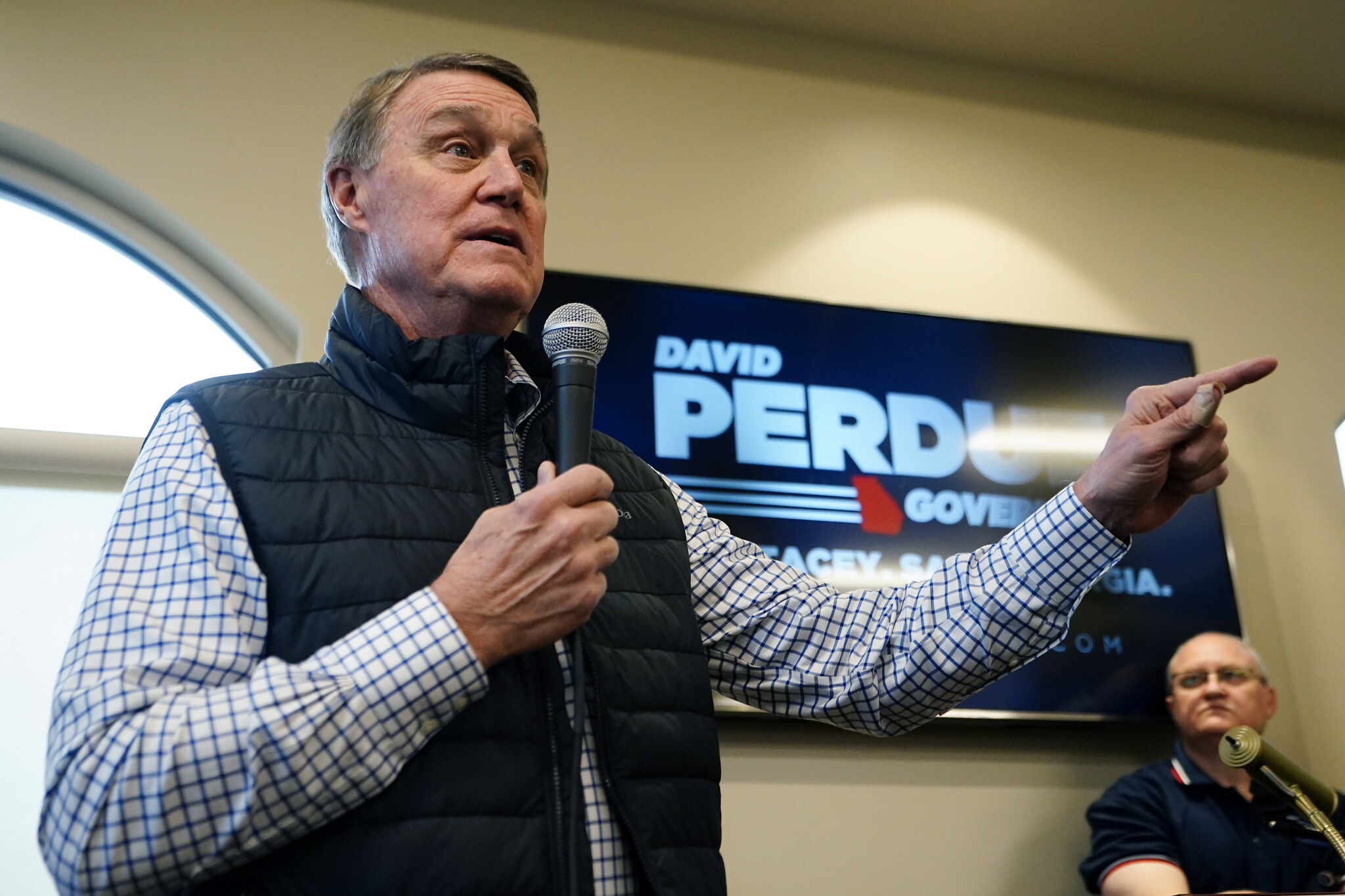ATLANTA (AP) — A report released on Friday revealed that a special grand jury investigating efforts to overturn Georgia’s 2020 presidential election results recommended indictments against a much larger group than prosecutors ultimately charged, including one current and two former US senators.
The nine-page report showed jurors recommended charges against 39 people, compared to the 18 who were charged along with former President Donald Trump. Those not indicted included Republican US Sen. Lindsey Graham of South Carolina, former US Sens. Kelly Loeffler and David Perdue of Georgia and former Trump national security adviser Michael Flynn.
Parts of the report, which has 19 pages of appendices, had been released in February, but a judge had delayed the release of any recommendations for specific charges against specific people until after last month’s indictment. While most of the intrigue in the inner workings of the case has diminished with the filing of charges, it is notable that the special grand jury recommended charges for many people who were not actually indicted.
A spokesperson for Trump, the early front-runner for the 2024 Republican presidential nomination, criticized the release in a statement, calling it “biased, un-American.”
Graham, Loeffler, Perdue and a lawyer who has represented Flynn did not immediately return messages seeking comment Friday.
The special grand jury included Graham’s name in a section about “the national effort to overturn the 2020 presidential election, which Trump lost to Joe Biden, a Democrat. The South Carolina Republican called Georgia Secretary of State Brad Raffensperger shortly after the November 2020 election. Raffensperger has said Graham asked him about whether he had the power to reject certain absentee ballots.
Sen. Kelly Loeffler, Republican-Georgia, speaks as US President Donald Trump, left, listens during a campaign rally in support of Senate candidates in Dalton, Georgia, January 4, 2021. (Brynn Anderson/AP)
Perdue and Loeffler were sitting US senators who had failed to win enough votes in the November 2020 general election and were forced into a January 2021 runoff, which they both ultimately lost to Democratic challengers. In the weeks after the election, they were vocal in their criticism of Raffensperger, going so far as to call for his resignation.
In an interview on a right-wing cable news channel in mid-December 2020, Flynn said Trump “could take military capabilities” and place them in swing states and “basically re-run an election in each of those states.” He also traveled to the South Carolina home of conservative lawyer Lin Wood in November 2020, when Wood has said meetings were held to discuss possible ways to influence the election results in Georgia and elsewhere.
The panel spent seven months hearing from some 75 witnesses before completing a report in December with recommendations for Fulton County District Attorney Fani Willis on charges related to attempts to overturn the election. Willis had said she needed the panel’s subpoena power to compel the testimony of witnesses who might otherwise not have been willing to appear.

Republican candidate for Georgia governor former Sen. David Perdue arrives to speak at a campaign stop at the Covington airport Wednesday, Feb. 2, 2022 (AP Photo/John Bazemore, File)
The release of the identities of people recommended for indictment is a departure from ordinary grand jury protocol, which dictates that prosecutors do not disclose the names of individuals investigated but not charged so as to prevent potentially innocent subjects from being unduly maligned.
Special grand juries in Georgia are relatively uncommon and are essentially an investigative tool. They do not have the power to bring an indictment but rather can produce a report with recommendations that are not binding on a district attorney, who must seek an indictment from a regular grand jury to bring charges against anyone.
The special grand jury’s report is based on the testimony of the witnesses prosecutors called and the evidence they presented over the second half of last year. In their report, the grand jurors made clear that the panel “contained no election law experts or criminal lawyers.”
“The majority of this Grand Jury used their collective best efforts, however, to attend every session, listen to every witness, and attempt to understand the facts as presented and the laws as explained,” the report continues.

In this file photo from February 1, 2017, then US national security adviser Michael Flynn speaks during the daily news briefing at the White House, in Washington. (AP Photo/Carolyn Kaster)
Of the 19 people ultimately indicted, only one was not included in the special grand jury’s recommendations. A former White House aide who served as the director of Trump’s election day operations, Michael Roman, was involved in efforts to put forth a set of fake electors after the 2020 election.
Fulton County Superior Court Judge Robert McBurney ordered the partial release of the report in February but declined to immediately release the panel’s recommendations on who should or should not be prosecuted. The judge said at the time that he wanted to protect people’s due process rights.
McBurney said in a new order filed Aug. 28 that the due process concerns were moot since a regular grand jury has indicted Trump and 18 other people under the state’s anti-racketeering law. All have pleaded not guilty.
Many of those indicted — including former New York mayor and Trump attorney Rudy Giuliani and Trump White House chief of staff Mark Meadows — are known to have testified before the special grand jury. Trump was never called and did not appear before the panel.
The parts of the report previously released in February included its introduction and conclusion, as well as a section in which the grand jurors expressed concerns that one or more witnesses may have lied under oath and urged prosecutors to seek charges for perjury. The panel’s foreperson had said in news interviews that the special grand jurors had recommended that numerous people be indicted.

